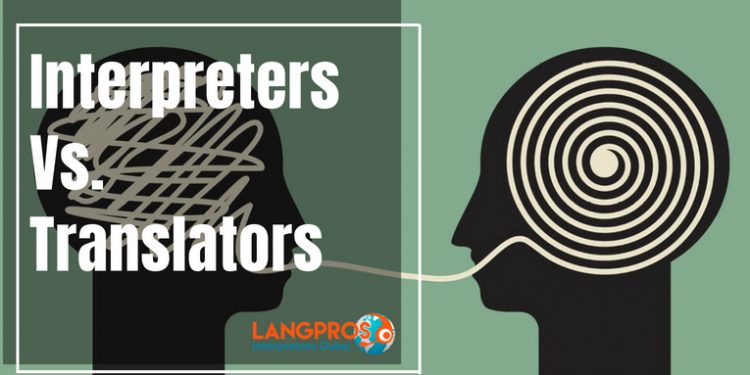“I need a professional translator for a business meeting”. “Our association is organizing a conference, so we need a translator available on the day of the event”. We often receive similar requests by our clients, in which they ask for a translator when they actually need an interpreter. Confusion may arise since the two professions share many similarities, such as deep cultural and linguistic understanding, expert knowledge of a subject matter, and ability to communicate clearly. However, knowing the differences between translators and interpreters will prove very useful when you need to choose whether you need one or the other. So, what are the main differences between interpreting and translation?
Written vs oral mode
First of all, interpreters work with oral texts (e.g. conferences, meetings, medical appointments etc.), while translators deal with written texts (e.g. instruction manuals, novels, subtitles, websites etc.). Translation is often a solitary profession, since a translator typically works on a project on his own. On the contrary, interpreters come into contact with many people (e.g. speakers and members of the audience at a conference), either in person or remotely.
Timing
Another key difference is that interpreting takes place in real time, while translation is delayed, i.e. it usually happens long after the source text has been produced. This gives translators the possibility to utilize any type of linguistic resource (e.g. computer-assisted translation tools, dictionaries, terminological databases, translation memories etc.). On the other hand, interpreters have to translate an oral message in real time, so they do not have time to check linguistic resources. They can only rely on their notes and, most of all, on their memory, in order to successfully convey the core message of the source discourse.

Language direction
Both interpreters and translators must possess an excellent command of at least two languages. But, when it comes to language direction, interpreters are often required to translate speeches either from their mother tongue into a foreign language or vice versa. For this reason, they must be fluent in both languages. On the other hand, translators usually translate texts into their mother tongue, so they do not have to be fluent in the source language.
Now that you know the differences between an interpreter and a translator, you are ready to request us to provide you with the most suitable professional for your language needs.











